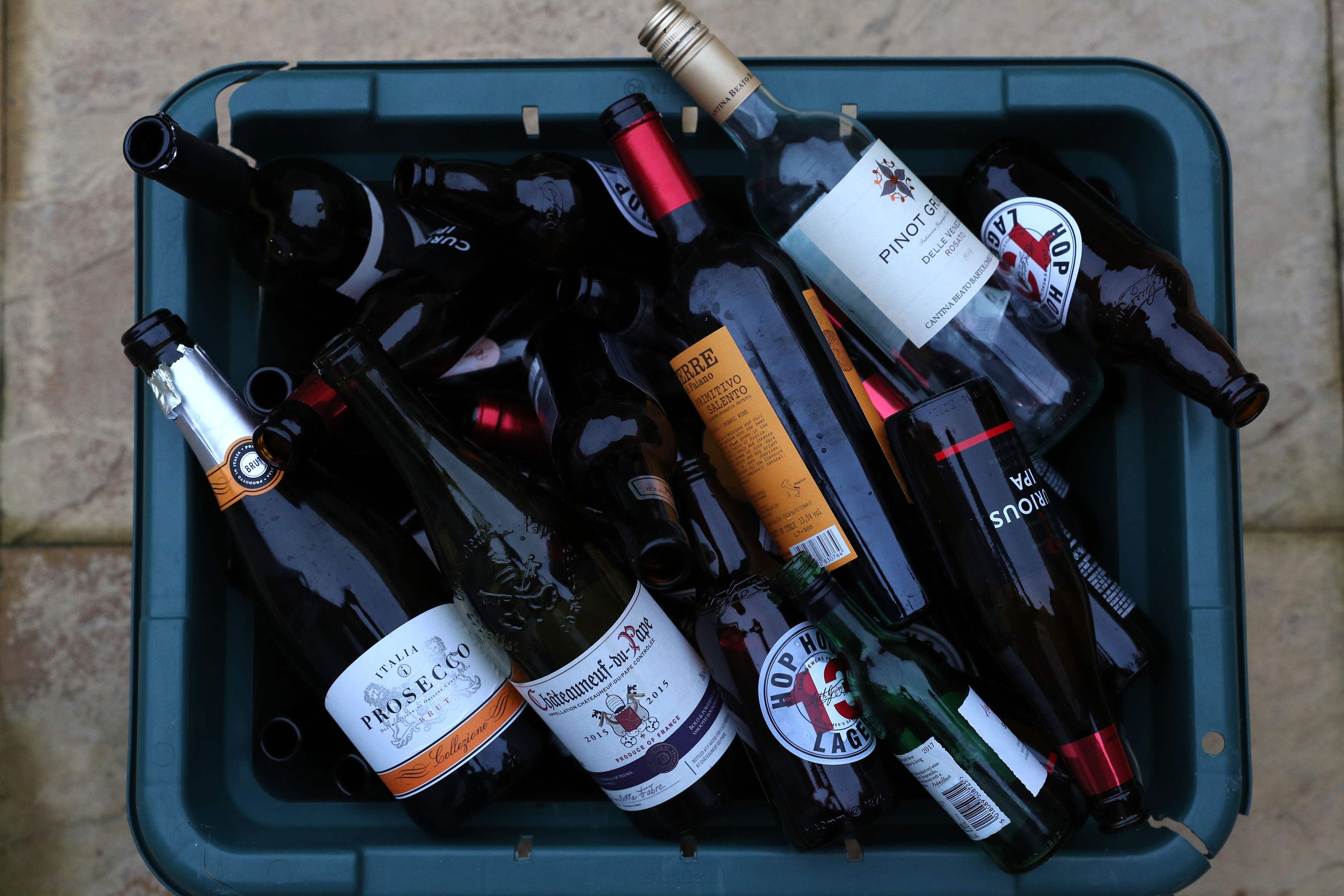Why Scotland’s flagship recycling scheme could end up in the bin
The plan to launch a recycling initiative in Scotland looks in danger of being canned after an intervention by Westminster, writes Sean O’Grady


A troubled deposit return scheme (DRS) in Scotland for plastic drinks bottles and cans stands in danger of collapse after the British government said it can only be implemented if it excludes glass containers – a stipulation that, if agreed to, would render the scheme substantially less viable.
The UK and Scottish governments appear to be in deadlock over the issue. The first minister of Scotland, Humza Yousaf, has written to the British prime minister, Rishi Sunak, saying that the UK government’s decision effectively to remove glass containers from the scheme has put the whole plan in “grave danger”.
If it goes live as planned in March 2024, the deposit return scheme will see a 20p charge incorporated in the price of certain drinks, which would be refunded to consumers on the return of the bottle or can in a bid to increase recycling. It was originally due to be introduced in July 2022.
Why has the UK government made this decision?
Cynics might say it was sheer bloody-mindedness backed by a brutal determination to further embarrass the SNP, after the recent resignation and revelations about former first minister Nicola Sturgeon. Indeed, Yousaf has said that the UK secretary of state for Scotland, Alister Jack, “simply wants to sink” the deposit return scheme.
However, the British government has said it is operating under the letter and spirit of the UK Internal Market Act. Some experts claim that the DRS requires an exemption from UK-wide rules that prevent different regulations from applying to the same product in England and Scotland. The British government has agreed that it can go ahead – but only if glass containers are removed from its remit.
Jack has cast doubt on whether the DRS is, in fact, as green an enterprise as is claimed: “The British glass industry have written to us and said, look, this is not recycling glass, this sort of scheme. Circularity Scotland are going to crush it and put it into aggregate for roads. We believe the scheme should be melting it, as happens with the current local authority schemes: it should be melted, and then recycled for bottles, and we agreed with that.”
What is the point of the scheme?
Obviously it’s supposed to help tackle the climate emergency, and also to symbolise the SNP-Scottish Green administration’s commitment to presiding over the greenest of the constituent nations of the UK. In the words of the Scottish government agency tasked with making it work, the scheme “will improve recycling rates and reduce litter in Scotland, as well as helping to tackle climate change. It will do this by incentivising a positive behaviour change and making it easy to do the right thing.”
It continues: “Recyclable materials are worth more money if they are well separated rather than mixed together. This also creates options for recycling the materials into higher-quality new products.”
Why was it adopted?
Aside from its environmentally sound credentials, it’s the flagship policy of the Scottish Greens, who are in a kind of coalition with the SNP. It would have been a pioneering move, but now the Scottish Greens’ circular economy minister Lorna Slater has said that the British government’s decision made “no sense” and that she will now need to assess whether the scheme is “something we can make work” ahead of its planned launch in March next year.
Are there any other problems with it?
Drinks companies in Scotland dislike the scheme because it immediately increases the price of their products in the shops, and they fear it will cut demand and production, thus jeopardising jobs and profitability. They also point to the difficulties in making a policy work in only one part of the UK, leading to significant price distortions and the possibility of arbitrage – that is, buying the same drinks cheaper in England – in border areas.
Smaller drinks firms, such as craft breweries, also object to the cost of helping to administer the scheme. Rising energy costs, in addition, erode the financial viability of recycling schemes more generally. There have also been issues with the barcode-driven automated returns machines, or “reverse vending machines”.
On the other hand, in countries across the world, deposit schemes for bottles of pop have worked perfectly well for decades, giving ambitious children the opportunity to earn some extra pocket money by taking litter out of streets, parks and the countryside.
What will happen next?
Given the risks involved in implementing the DRS, the Scottish government – or at least the majority SNP element – might actually be secretly relieved that it has proved uneconomic and can be postponed yet again. Given a choice between an apparently forced postponement and a disastrous and unpopular rollout, the SNP might well choose the former, if truth be told: the party already faces difficult elections, for Westminster next year and for Holyrood in 2026.
Meantime, the SNP and the Scottish Greens can merrily blame the arrogance of Tories in Westminster, and turn the issue into another point of contention in the independence debate. In that respect, this fairly prosaic policy can be weaponised, like the Gender Identity Bill, to generate extra hostility to the idea of rule by a London elite – and one that is claimed to be determined to undermine devolution, if not reverse it.
Looking further ahead, if, as is planned in principle, similar schemes are introduced in England, Wales and Northern Ireland in the coming years, then the internal market objection to Scotland’s DRS will fall away. All that would then be needed would be a plan to make it work.






Join our commenting forum
Join thought-provoking conversations, follow other Independent readers and see their replies
Comments